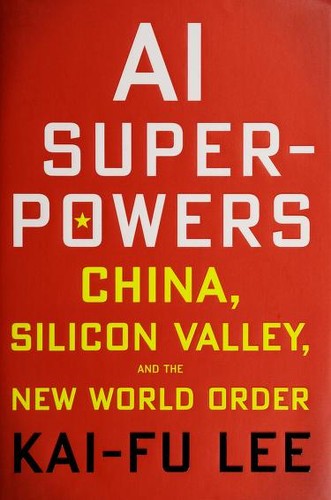borgbookcollective reseñó AI superpowers de Kai-Fu Lee
Great read on China's A.I. scene
5 estrellas
Mr. Lee makes good arguments for why China may become a dominant global powerhouse in AI. In a growing multipolar world, his arguments are very reasonable.
In essence, the arguments boil down to two major shifts:
- From the age of discovery (e.g., heavy research focus, primarily in the U.S. and Canada) to the age of implementation (e.g., scrappy, do-anything entrepreneurs apply research to real-world business models).
The described 'gladiator' style of entrepreneurship in China where ultra nimble founders do anything it takes to beat out the competition and tune to market demands is worth a read alone. There's even an interesting story of how search engine competitors played nasty tricks on Google China.
- From the age of expertise to the age of data (e.g., quantity of data is the fuel to power ever-more accurate and powerful AI algorithms).
…
Mr. Lee makes good arguments for why China may become a dominant global powerhouse in AI. In a growing multipolar world, his arguments are very reasonable.
In essence, the arguments boil down to two major shifts:
- From the age of discovery (e.g., heavy research focus, primarily in the U.S. and Canada) to the age of implementation (e.g., scrappy, do-anything entrepreneurs apply research to real-world business models).
The described 'gladiator' style of entrepreneurship in China where ultra nimble founders do anything it takes to beat out the competition and tune to market demands is worth a read alone. There's even an interesting story of how search engine competitors played nasty tricks on Google China.
- From the age of expertise to the age of data (e.g., quantity of data is the fuel to power ever-more accurate and powerful AI algorithms).
This was the most important takeaway from the book for me. The difference between how U.S. and Chinese companies collect data. This is the crux of Mr. Lee's argument of why China may end up leading AI.
Chinese companies are more vertically integrated and collect significantly more offline, real-world data than the average U.S. company (which are more focused on collecting online data -- such as browsing habits, likes, views, etc.).
Chinese companies know the what, when, where you purchased your meals, booked your doctor appointment, spent on a makeover, traveled to, even right down to your phone battery levels. That is, they "embrace the messy details of the real world" & this is what gives them an advantage over Silicon Valley. The offline-to-online (020) merger of daily life across billions of consumers will become the data oil that will feed and run these powerful AI algorithms.
This is a very interesting read and recommended it.


